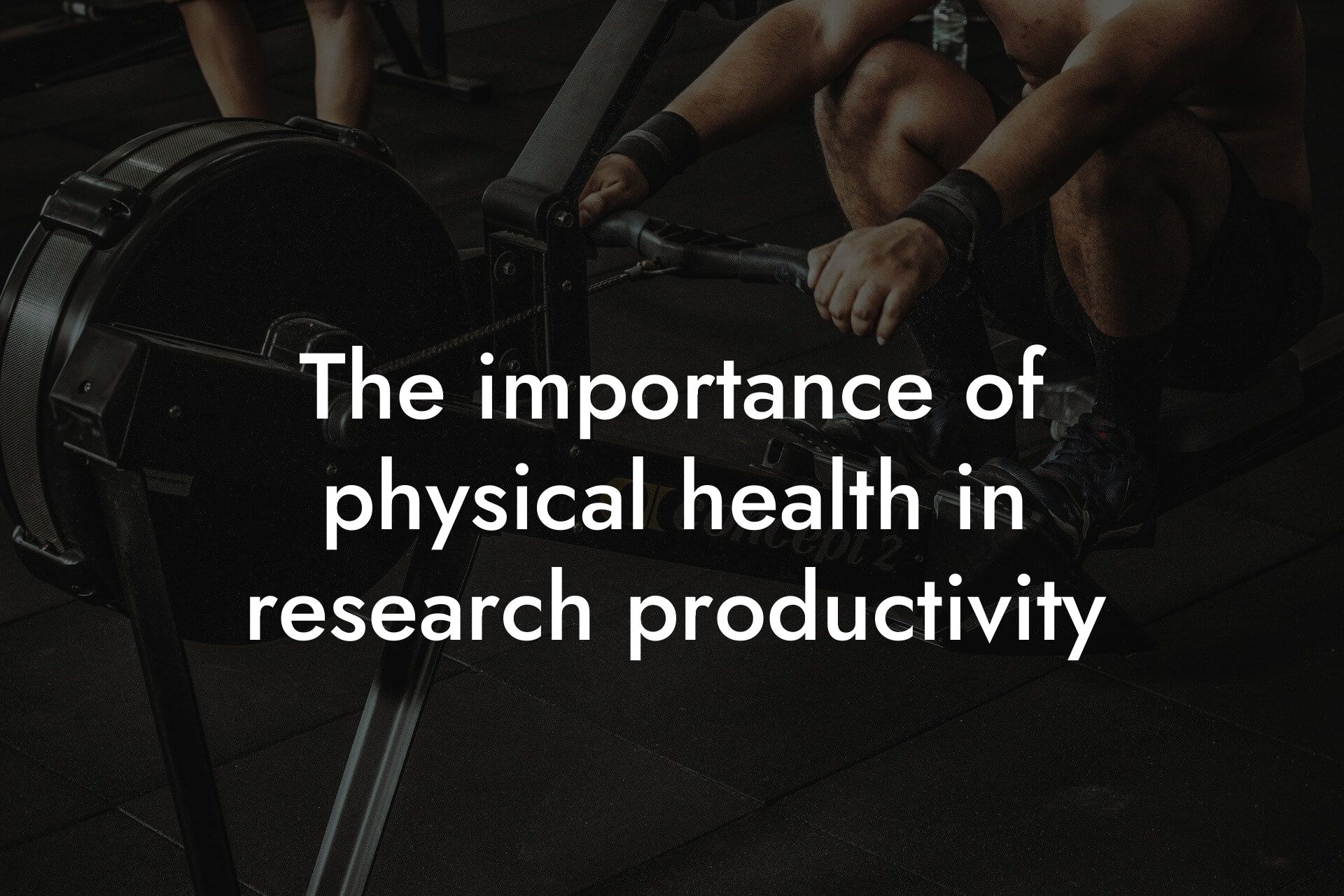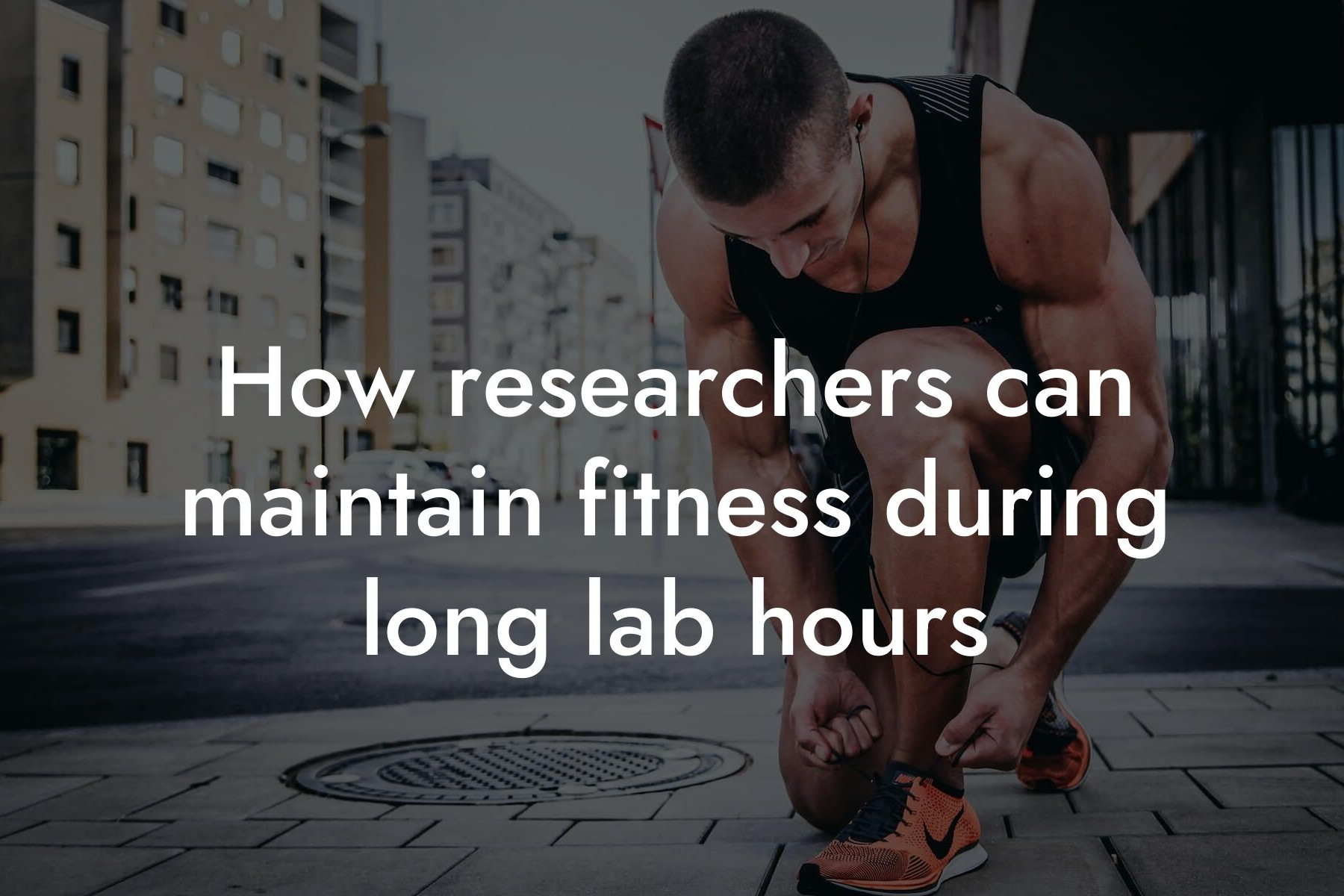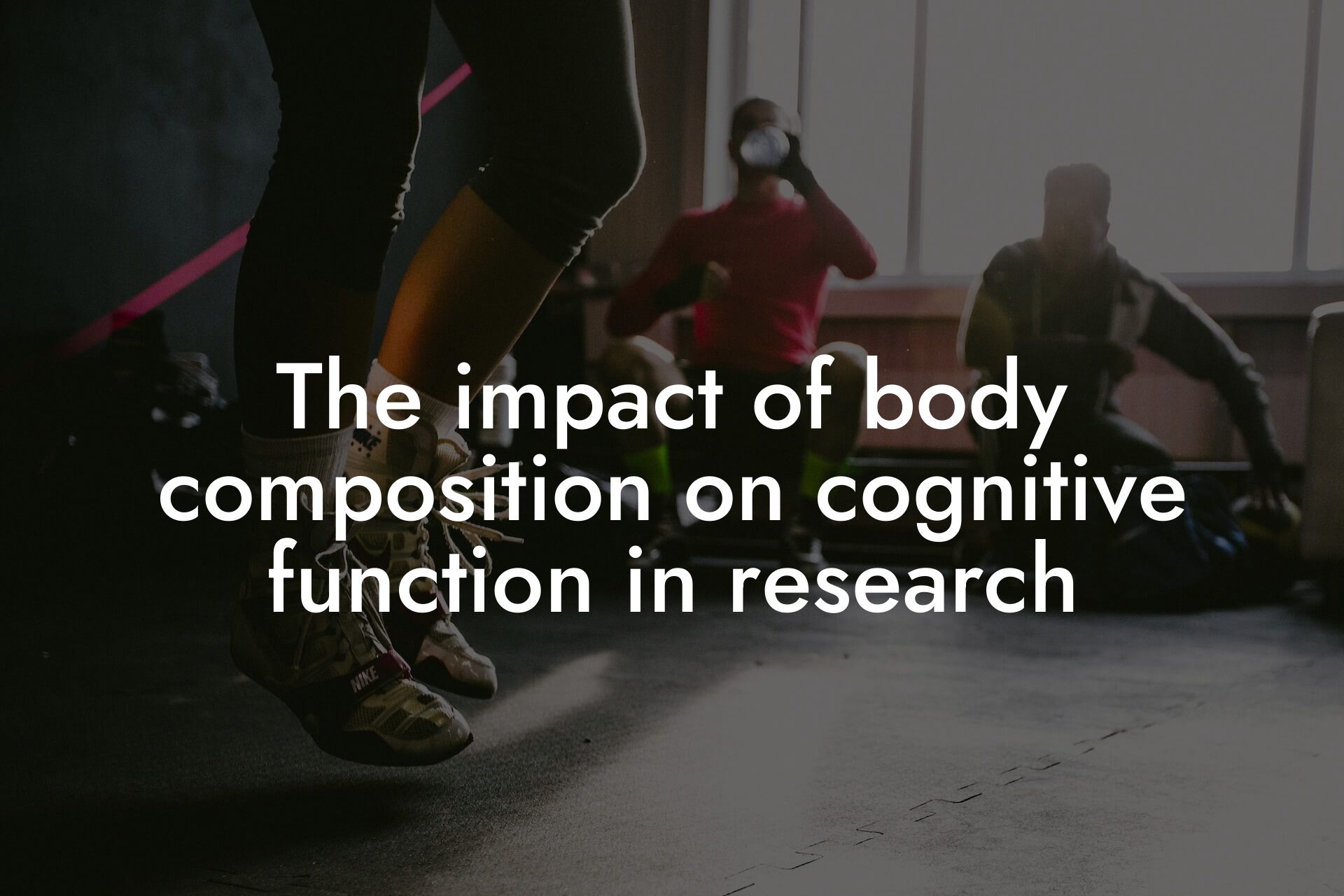The Impact of Stress on High-Earning Professionals
As a high-earning professional, you're no stranger to stress. The pressure to perform, meet deadlines, and maintain a work-life balance can take a toll on your mental and physical health. Chronic stress can lead to anxiety, depression, and a weakened immune system, ultimately affecting your productivity and overall well-being. However, there is a silver lining – physical fitness can be a powerful tool in managing stress and improving your overall health.
Table of Contents
- The Impact of Stress on High-Earning Professionals
- The Science Behind Stress and Exercise
- The Role of Cortisol in Stress Response
- Exercise and Stress Reduction: The Types of Exercise That Matter
- The Importance of Consistency and Duration
- Measuring the Impact of Exercise on Stress: The Role of DEXA Scans
- Real-World Examples: How Exercise Has Helped High-Earning Professionals Manage Stress
- Conclusion: Taking Control of Stress through Physical Fitness
- Frequently Asked Questions
The Science Behind Stress and Exercise
When you exercise, your body releases endorphins, also known as "feel-good" hormones. These natural chemicals interact with the brain's opioid receptors, producing a sense of relaxation and reducing stress levels. Regular physical activity has been shown to decrease the production of stress hormones like cortisol, leading to a decrease in anxiety and depression symptoms. Furthermore, exercise has been found to improve sleep quality, which is often disrupted by stress.
The Role of Cortisol in Stress Response
Cortisol is a hormone produced by the adrenal gland that plays a crucial role in the body's response to stress. When you're under stress, your cortisol levels surge, preparing your body for the "fight or flight" response. However, chronically elevated cortisol levels can have negative effects on your body, including weight gain, insomnia, and a weakened immune system. Regular exercise has been shown to decrease cortisol levels, promoting a healthier stress response.
Exercise and Stress Reduction: The Types of Exercise That Matter
While any form of exercise can help reduce stress, some types are more effective than others. Aerobic exercise, such as running, cycling, or swimming, is particularly effective in reducing stress and anxiety. This is because aerobic exercise stimulates the production of endorphins, which, as mentioned earlier, interact with the brain's opioid receptors to produce a sense of relaxation. Resistance training, on the other hand, can help improve sleep quality, which is often disrupted by stress.
The Importance of Consistency and Duration
Consistency is key when it comes to using exercise as a stress-reduction tool. Aim to exercise at least three to four times per week, with a minimum duration of 30 minutes per session. This can be broken down into shorter sessions, such as 15-minute bursts of high-intensity exercise, or longer sessions of low-to-moderate intensity exercise. The key is to find a routine that works for you and stick to it.
Measuring the Impact of Exercise on Stress: The Role of DEXA Scans
At Tano Performance Group, we understand the importance of measuring the impact of exercise on stress. That's why we use DEXA scans to provide a comprehensive body assessment. DEXA scans measure body fat percentage, bone density, and muscle mass, giving you a clear picture of how exercise is affecting your body. By tracking these metrics, you can adjust your exercise routine to optimize stress reduction and overall health.
Real-World Examples: How Exercise Has Helped High-Earning Professionals Manage Stress
We've seen firsthand the impact of exercise on stress reduction in high-earning professionals. One of our clients, a finance executive, was struggling with chronic stress and anxiety. After implementing a regular exercise routine, including aerobic exercise and resistance training, they reported a significant decrease in stress levels and improved sleep quality. Another client, a entrepreneur, used exercise as a way to manage stress during a particularly challenging period in their business. They reported feeling more focused and productive, and were able to make better decisions under pressure.
Conclusion: Taking Control of Stress through Physical Fitness
Managing stress is essential for high-earning professionals who want to maintain their physical and mental health. By incorporating regular exercise into your routine, you can reduce stress levels, improve sleep quality, and boost your overall well-being. Remember, consistency is key, and tracking your progress through metrics like body fat percentage, bone density, and muscle mass can help you optimize your exercise routine. At Tano Performance Group, we're committed to helping you take control of your stress and unlock your full potential.
Frequently Asked Questions
What is the connection between physical fitness and stress management?
Research has consistently shown that regular physical activity can help reduce stress levels and anxiety by releasing endorphins, also known as "feel-good" hormones. Exercise has been proven to improve mood, reduce symptoms of depression, and enhance overall mental well-being, making it an essential component of stress management.
How does exercise affect the body's response to stress?
Exercise stimulates the production of neurotransmitters like serotonin and dopamine, which help regulate mood and emotions. Physical activity also increases the production of cortisol, a hormone that helps the body respond to stress. However, regular exercise can help regulate cortisol levels, reducing the negative impact of chronic stress on the body.
What are some common physical symptoms of stress?
Common physical symptoms of stress include headaches, muscle tension, fatigue, insomnia, and digestive problems. Regular exercise can help alleviate these symptoms by reducing muscle tension, improving sleep quality, and boosting energy levels.
Can exercise really reduce stress and anxiety?
Absolutely! Numerous studies have demonstrated the anxiety-reducing effects of exercise. In fact, a study published in the Journal of Clinical Psychology found that exercise was just as effective as medication in reducing symptoms of anxiety and depression.
What type of exercise is best for stress relief?
Any type of exercise can help reduce stress, but activities that combine physical movement with mental focus, such as yoga or Pilates, may be particularly effective. Aerobic exercise, like running or cycling, can also be beneficial, as it releases endorphins and improves mood.
How often should I exercise to manage stress?
Aim to engage in moderate-intensity exercise for at least 30 minutes, three to four times a week. However, even small amounts of physical activity, such as taking a short walk during lunch breaks, can be beneficial for stress relief.
Can I exercise too much and increase stress?
Yes, overexercising can lead to increased stress levels. It's essential to find a balance between physical activity and rest. Listen to your body and take rest days as needed to avoid burnout and prevent injuries.
How does exercise impact sleep quality, and why is sleep important for stress management?
Regular exercise can help improve sleep quality by reducing symptoms of insomnia and sleep disorders. Adequate sleep is essential for stress management, as it allows the body to recover and recharge, reducing feelings of fatigue and anxiety.
What role does nutrition play in stress management and physical fitness?
A balanced diet that includes plenty of fruits, vegetables, whole grains, and lean protein sources can help support physical fitness and stress management. A healthy diet can also reduce inflammation, improve mood, and boost energy levels.
Can exercise help reduce symptoms of depression?
Yes, exercise has been shown to be an effective adjunct therapy for depression. Regular physical activity can improve mood, reduce symptoms of depression, and enhance overall mental well-being.
How does exercise impact bone density, and why is this important for high-earning professionals?
Regular exercise, especially weight-bearing activities like running or weightlifting, can help improve bone density, reducing the risk of osteoporosis and fractures. This is particularly important for high-earning professionals, as they may have a higher risk of developing osteoporosis due to their busy lifestyles and potential lack of physical activity.
What are some exercises that can help improve body composition and reduce body fat?
High-intensity interval training (HIIT), strength training, and aerobic exercises like cycling or swimming can help improve body composition and reduce body fat. Additionally, incorporating exercises that target multiple muscle groups, such as squats and lunges, can be effective for burning calories and building lean muscle mass.
How can I incorporate physical fitness into my busy schedule as a high-earning professional?
Start small by scheduling short exercise sessions into your daily routine, such as taking a 10-minute walk during lunch breaks or doing a quick workout at home before bed. You can also consider hiring a personal trainer or fitness coach to help you develop a customized exercise plan that fits your busy schedule.
What are some common barriers to exercise, and how can I overcome them?
Common barriers to exercise include lack of time, motivation, and energy. To overcome these barriers, start by setting realistic goals and finding an exercise routine that you enjoy. You can also find a workout buddy or join a fitness community to increase motivation and accountability.
How does exercise impact cognitive function and productivity?
Regular exercise has been shown to improve cognitive function, boost productivity, and enhance creativity. Physical activity stimulates blood flow to the brain, improving focus, concentration, and overall mental performance.
Can exercise help reduce symptoms of anxiety in high-pressure professions?
Absolutely! Exercise has been shown to be an effective stress-reduction strategy for individuals in high-pressure professions, such as finance, law, and medicine. Regular physical activity can help reduce symptoms of anxiety, improve mood, and enhance overall well-being.
What are some exercises that can help improve posture and reduce back pain?
Strengthening exercises that target the core muscles, such as planks and bridges, can help improve posture and reduce back pain. Additionally, stretching exercises that target the neck, shoulders, and back, such as yoga or Pilates, can also be beneficial.
How does exercise impact self-esteem and body confidence?
Regular exercise can improve self-esteem and body confidence by enhancing physical appearance, improving body composition, and boosting overall mental well-being. Exercise can also increase feelings of empowerment and self-efficacy, leading to a more positive body image.
Can exercise help reduce symptoms of burnout and exhaustion?
Yes, exercise can help reduce symptoms of burnout and exhaustion by improving mood, reducing stress, and increasing energy levels. Regular physical activity can also help improve sleep quality, reducing feelings of fatigue and burnout.
What are some exercises that can help improve flexibility and mobility?
Stretching exercises, such as yoga or Pilates, can help improve flexibility and mobility. Additionally, activities like tai chi or dance can also be beneficial for improving flexibility and reducing stiffness.
How does exercise impact overall health and well-being?
Regular exercise has numerous benefits for overall health and well-being, including reducing the risk of chronic diseases, improving mental health, and enhancing physical function. Exercise can also improve sleep quality, boost energy levels, and increase overall feelings of happiness and well-being.
What resources are available to help me get started with a physical fitness routine?
There are numerous resources available to help you get started with a physical fitness routine, including fitness apps, personal trainers, and online workout programs. You can also consult with a healthcare professional or fitness coach to develop a customized exercise plan that meets your needs and goals.
Here are some related articles you might love...
- The importance of physical health in research productivity
- How researchers can maintain fitness during long lab hours
- The impact of body composition on cognitive function in research
- Quick workouts for researchers during lab breaks
- Balancing lab work with personal fitness goals
- Nutrition strategies for maintaining focus during experiments
- The role of physical fitness in preventing research-related injuries
- How to stay active during sedentary research work
- How DEXA scans can benefit scientists and researchers
Zak Faulkner
Zak Faulkner is a leading authority in the realm of physical health and body composition analysis, with over 15 years of experience helping professionals optimise their fitness and well-being. As one the experts behind Tano Performance Group, Zak has dedicated his career to providing in-depth, science-backed insights that empower clients to elevate their physical performance and overall health.
With extensive knowledge of DEXA technology, Zak specializes in delivering comprehensive body assessments that offer precise data on body fat, muscle mass, bone density, and overall physique. His expertise enables individuals to make informed decisions and achieve their fitness goals with accuracy and confidence. Zak’s approach is rooted in a deep understanding of human physiology, combined with a passion for helping clients unlock their full potential through personalised strategies.
Over the years, Zak has earned a reputation for his commitment to excellence, precision, and client-focused service. His guidance is trusted by top professionals who demand the best when it comes to their health. Whether advising on fitness programs, nutritional strategies, or long-term wellness plans, Zak Faulkner’s insights are a valuable resource for anyone serious about taking their health and fitness to the next level.
At Tano Performance Group, Zak continues to lead our Content Team revolutionising how professionals approach their physical health, offering unparalleled expertise that drives real results.




